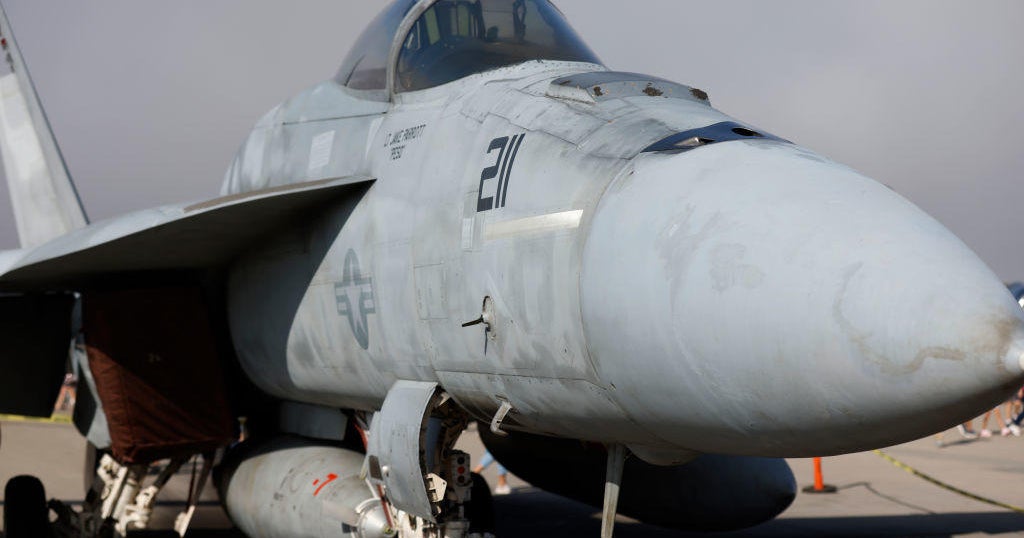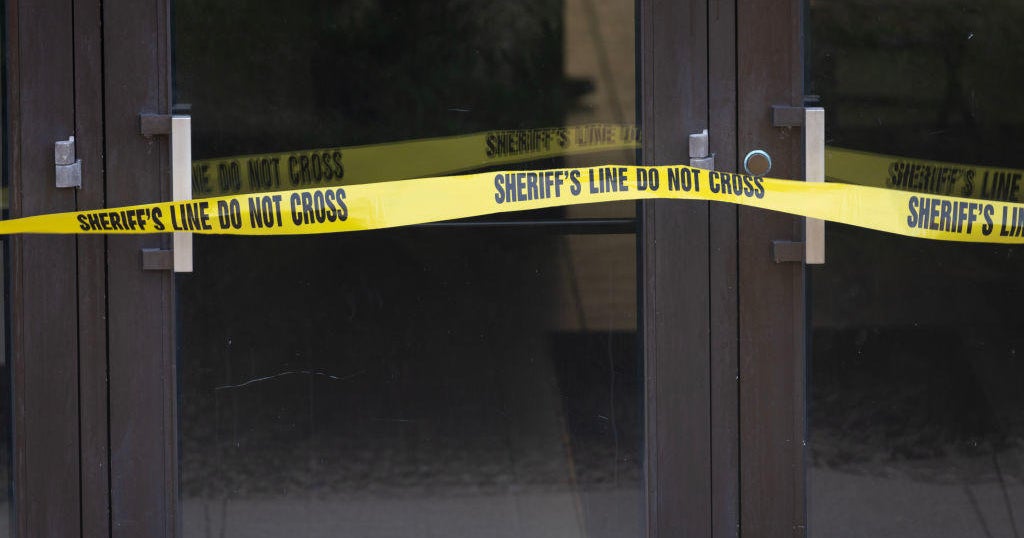Iran calls U.S. claim of downed drone a "big lie," vows to secure Strait of Hormuz itself
Fujairah, United Arab Emirates -- Iran denied again Wednesday that a U.S. warship brought down at least one of its drones in the Persian Gulf last week. U.S. Central Command chief Gen. Kenneth McKenzie told CBS News' David Martin on Tuesday, in an interview aboard the USS Boxer amphibious assault ship, that the vessel took "decisive action" against two Iranian drones.
"We are confident we brought down one drone, (and) we may have brought down a second," McKenzie said.
Iran's Defense Minister Gen. Amir Hatami dismissed the claims, however, telling reporters Wednesday that when Iran shot down a U.S. drone last month it shared images of the wreckage to verify it.
"If someone claims, he should provide evidence," Hatami said, insisting "none of our drones have been intercepted."
The commander of the Iran's elite Islamic Revolution Guards Corps (IRGC) echoed the sentiment, challenging U.S. officials to provide any evidence proving their claim to have brought down Iranian drones.
"I officially declare that no Iranian or IRGC drone has been downed," Major General Hossein Salami told reporters. "I strongly assert that it is a big lie, and we have proved it too. We have proved whatever we have done and enemies should prove their claims as well."
Who will secure the Strait of Hormuz?
In a sign that the Iranian government could be trying to ease the boiling tensions in the Gulf, Tehran declared Wednesday that Iranian forces intended to secure the Strait of Hormuz to prevent any "disturbance in shipping" through the vital waterway. The narrow Strait is the gateway from the Persian Gulf into the rest of the world's oceans, and about a fifth of the global oil supply passes through it every year.
Hours later, the BW Elm, a British-flagged commercial vessel, transited the Strait in the first such passage made by a British ship since Iran seized another U.K.-flagged tanker, the Stena Impero, and its crew last week. Iran seized the Stena just days after vowing an unspecified response to the seizure of its own tanker by British forces off Gibraltar. Tehran has accused Britain of "piracy" over that seizure, but the U.K. says it was done in line with EU sanctions barring the transfer of oil products to Syria.
Iranian President Hassan Rouhani hinted Wednesday at the possibility of a possible ship-for-ship swap to ease the standoff.
"We do not seek continuation of tension with some European countries," Rouhani said. "Should they be committed to international frameworks and give up their wrong actions, including what they did in Gibraltar, they will receive a proportional response from Iran, too, in return for their suitable action."
Maritime publication Lloyd's List said the British warship HMS Montrose shadowed the BW Elm on Wednesday, but did not provide a direct escort. The Royal Navy could not immediately be reached for comment.
While declaring itself the unilateral protector of the Strait, along which Iran has more than 1,000 miles of coastline, Tehran also lashed out at the British government's own plan to form an international coalition to protect commercial shipping interests in the Gulf, saying it would only "bring insecurity" to the region.
On Tuesday Italy, Denmark, the Netherlands and France said they were backing the British proposal for a European naval force after Tehran's seizure of the Stena Impero.
The crumbling nuclear accord
Tension in the Gulf waters was precipitated by a standoff over the fate of the nuclear deal agreed by Tehran and other world powers in 2015. Iran was infuriated by President Trump's decision to unilaterally pull the U.S. out of the agreement signed by his predecessor, and has pressured Europe to offset crippling sanctions re-imposed by the U.S. following the withdrawal.
Ratcheting up that pressure, Iran began openly exceeding the limits on its uranium enrichment set by the accord last month.
Nations still party to the shaky nuclear deal were scheduled to meet this weekend in Austria to try and map out a course to save the agreement.
Meanwhile, the French government has asked Iran to return to compliance with the nuclear deal's terms and take the necessary steps to ensure the de-escalation of tensions in the Gulf. The appeal was made to Iran's deputy foreign minister Abbas Araghchi when he met French President Emmanuel Macron in Paris.
For months Macron has tried but struggled to initiate new direct negotiations between Tehran and Washington to tamp down the spiralling rhetoric in the region.
The European Union said the weekend meeting of China, Russia, Britain, France and Germany would "examine issues linked to the implementation of the (nuclear deal) in all its aspects."
The U.S. hasn't commented on the upcoming summit, but Iranian president Hassan Rouhani said Wednesday that he was open to negotiations with the White House -- if they did not mean "surrender."
It wasn't the first time Rouhani has indicated that he'd be open to talks with Mr. Trump's administration, and the U.S. president has said repeatedly that he'd like to hammer out a new deal with Tehran.
But the decision on whether to return to talks belongs to Iran's Supreme Leader Ayatollah Ali Khamenei, who last month said Iran would not repeat what he called the "bitter experience" of negotiating with the United States, after Mr. Trump's reversal of previous policy.



